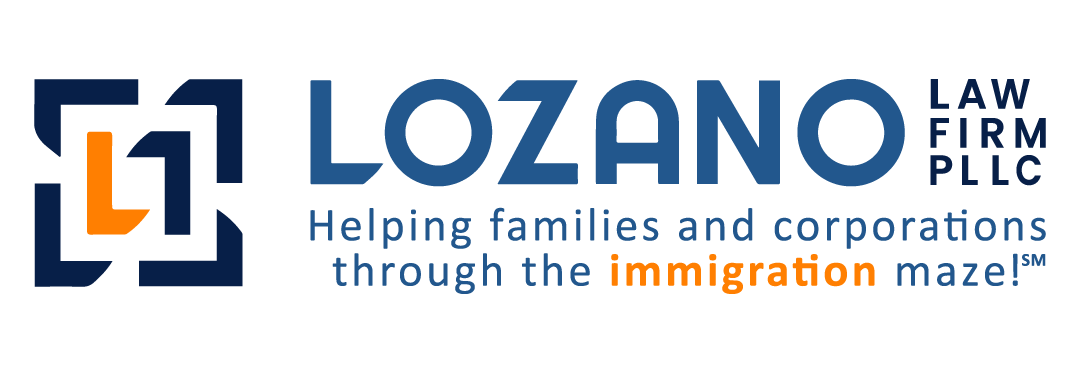Immigrating to the United States for work can be an exciting but challenging process. For companies with international offices, the L-1 Visa is an effective tool for transferring employees to the U.S. Understanding the differences between the L-1A and L-1B Visas is essential for businesses and workers. Choosing the correct category can impact career growth and long-term immigration prospects.
Both Visas fall under the L-1 classification but serve distinct purposes. This article breaks down the key distinctions between these two Visas to help employers and employees make informed decisions.
Understanding The L-1 Visa Category
The L-1 Visa is designed for international companies that need to transfer key employees to the United States. This Visa allows foreign workers to continue working for the same employer or an affiliated company in the U.S. It helps businesses expand operations, improve efficiency, and maintain strong global ties. By facilitating talent mobility, the L-1 Visa supports the growth of multinational companies.
There are two types of L-1 Visas: L-1A and L-1B. The L-1A Visa is reserved for executives and managers who oversee company operations or specific departments. The L-1B Visa, on the other hand, is for employees with specialized knowledge critical to the business. Both Visa types require the applicant to have worked for the company abroad for at least one continuous year within the last three years.
The L-1 Visa category is non-immigrant, meaning it grants temporary status in the U.S. However, it can also serve as a stepping stone to permanent residency for those who qualify. Employers and employees must carefully assess which L-1 category best suits their needs. Understanding these distinctions is the first step in ensuring a smooth immigration process.
L-1A Visa: Managers & Executives
Managing a company requires vision, leadership, and the ability to oversee operations. The L-1A Visa allows companies to transfer high-level employees who play an essential role in the organization’s growth. These individuals either manage entire departments, direct other employees or make key business decisions. The L-1A Visa helps international companies maintain continuity and leadership in their U.S. branches.
Eligibility Criteria
To qualify for an L-1A Visa, applicants must have worked for a related foreign entity for at least one year in the last three years. They must come to the U.S. to serve in a managerial or executive role. A manager oversees a department, function, or group of employees, while an executive makes high-level strategic decisions. The applicant must prove they will be performing qualifying duties in the U.S.
Duration Of Stay
The initial validity of an L-1A Visa is up to one year for new office setups and three years for existing offices. Extensions are available in two-year increments, with a maximum stay of seven years. This extended period allows managers and executives to establish and grow business operations. Companies benefit from the stability provided by experienced leadership.
Pathway To Permanent Residency
One significant advantage of the L-1A Visa is its direct pathway to a green card. L-1A holders are eligible to apply for permanent residency through the EB-1C category. This employment-based green card does not require a labor certification, making it a faster option. For many executives and managers, the L-1A Visa is the first step toward long-term residency in the U.S.
A well-structured leadership team is essential for a successful business. The L-1A Visa ensures that multinational companies can retain experienced managers and executives in the U.S.
L-1B Visa: Specialized Knowledge Employees
Some employees possess unique knowledge that sets them apart from others in their field. The L-1B Visa is designed for workers with specialized knowledge that is critical to a company’s success. This could include expertise in proprietary technologies, advanced processes, or internal systems. The L-1B Visa enables companies to transfer employees who bring significant value to their U.S. operations.
Eligibility Criteria
To qualify, the applicant must have worked for the company abroad for at least one continuous year in the last three years. They must also demonstrate specialized knowledge not easily found in the U.S. workforce. Employers must prove that the applicant’s skills are essential to the U.S. business.
Duration Of Stay
L-1B Visa holders are granted an initial stay of up to one year for new offices and three years for existing operations. Extensions are available, but the maximum stay is five years. This timeframe allows businesses to leverage specialized skills while maintaining operational continuity. However, it is shorter than the L-1A Visa, making long-term planning essential.
Pathway To Permanent Residency
Unlike the L-1A Visa, the L-1B does not offer a direct path to permanent residency. Most L-1B Visa holders must go through the EB-2 or EB-3 green card process. These categories require a labor certification, proving no qualified U.S. workers are available. While more challenging, obtaining a green card through this route is still possible with the right strategy.
Companies rely on specialized employees to stay competitive. The L-1B Visa ensures businesses can transfer key talent while complying with immigration laws.
Key Differences Between L-1A & L-1B Visas
Choosing between an L-1A and L-1B Visa is like selecting the right tool for a job—each serves a distinct function. While both Visas allow intracompany transfers, they apply to different roles and have separate immigration pathways. Understanding these differences is key to selecting the right Visa for your needs. Below are the main distinctions between L-1A and L-1B Visas.
Role and responsibilities:
- L-1A Visa: For executives and managers responsible for strategic decisions or overseeing employees.
- L-1B Visa: For employees with specialized knowledge essential to company operations.
Duration and extensions:
- L-1A Visa: Maximum stay of seven years, making it suitable for long-term business leadership.
- L-1B Visa: Maximum stay of five years, better for short- to mid-term assignments.
Green Card eligibility:
- L-1A Visa: Provides a direct path to residency through the EB-1C category.
- L-1B Visa: Requires a more complex green card process under the EB-2 or EB-3 categories.
Application process:
- L-1A Visa: Focuses on leadership responsibilities and managerial duties.
- L-1B Visa: Emphasizes specialized knowledge and its significance to the company.
Choosing the right Visa requires careful planning. Employers and employees must evaluate their roles and long-term goals before applying.
Choosing Between L-1A & L-1B Visas
Selecting the right Visa is like picking the best route for a journey—each path leads to a different destination. The choice between L-1A and L-1B Visas depends on the applicant’s role, job duties, and long-term goals. Employers must evaluate whether the position requires managerial responsibilities or specialized knowledge.
Here are several factors to consider:
- Job Function: L-1A suits executives and managers, while L-1B is for employees with unique expertise.
- Assignment Duration: L-1A offers a longer stay, making it better for leadership roles, while L-1B has a shorter limit.
- Green Card Goals: L-1A Visa holders have an easier path to permanent residency compared to L-1B applicants.
Choosing the appropriate Visa can impact business growth and employee retention. Companies that plan to keep key personnel in the U.S. long-term may prefer the L-1A for its easier transition to a green card. Those needing short-term, specialized support may benefit from the L-1B. Understanding these factors helps employers and employees make the right immigration choices.
With careful planning, businesses can ensure they are selecting the visa that best aligns with their operational needs. Making the right decision from the start prevents unnecessary delays and complications.
How Lozano Law Firm Can Assist With L-1A & L-1B Visas
Navigating the U.S. immigration system can be overwhelming without the right legal support. The Lozano Law Firm provides experienced legal guidance for companies and professionals seeking L-1A and L-1B Visas. Whether you are an executive, manager, or specialized employee, our firm ensures that your case is handled with precision. We aim to simplify the process and help you achieve a successful outcome.
The Lozano Law Firm has extensive experience with intracompany transfer Visas. Our team understands the requirements and complexities involved in L-1 Visa applications. We work closely with businesses to ensure applications meet all U.S. Citizenship and Immigration Services (USCIS) guidelines. Our knowledge of immigration law allows us to provide strategic advice for each case.
Every case is unique, and a one-size-fits-all approach does not work for L-1 Visas. The Lozano Law Firm takes the time to understand each client’s specific needs. We guide applicants through every stage of the process, from gathering documentation to filing applications. Our tailored approach helps clients avoid common mistakes and delays.
Our comprehensive support includes:
- Assistance with Form I-129 and supporting documents.
- Review of employment history and eligibility verification.
- Guidance on L-1 Visa extensions and renewals.
- Support for transitioning from an L-1 Visa to a Green Card.
If you are considering an L-1A or L-1B Visa, The Lozano Law Firm is here to help. Contact us today to discuss your immigration goals and start your application with confidence.
Understanding the differences between L-1A and L-1B Visas is essential for companies and employees planning an intracompany transfer. The L-1A Visa is ideal for executives and managers who oversee business operations, while the L-1B Visa is for employees with specialized knowledge. Companies must carefully assess their needs before choosing between these Visas. The L-1A provides a clear path to permanent residency, while the L-1B requires additional steps for a green card.
Seeking professional guidance from an experienced immigration attorney can help streamline the process. The Lozano Law Firm offers skilled assistance to businesses and professionals seeking reliable legal support.

 Thank you for contacting us. Please complete this form and one of our team members will be in touch with you soon.
Thank you for contacting us. Please complete this form and one of our team members will be in touch with you soon.



